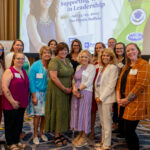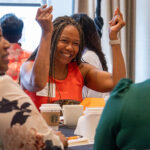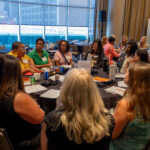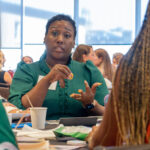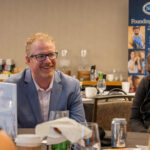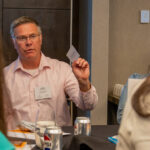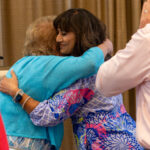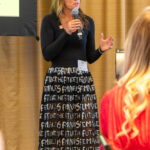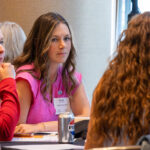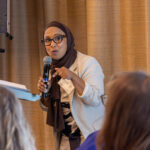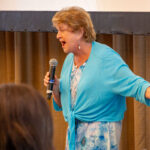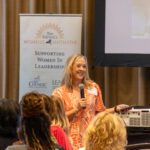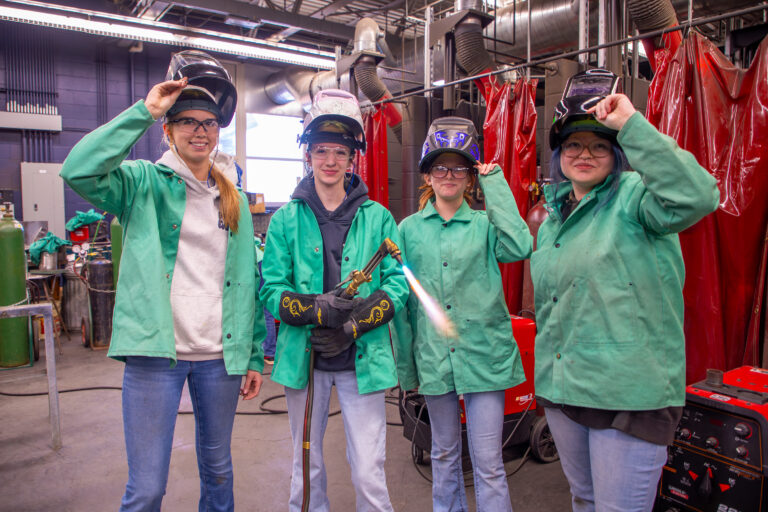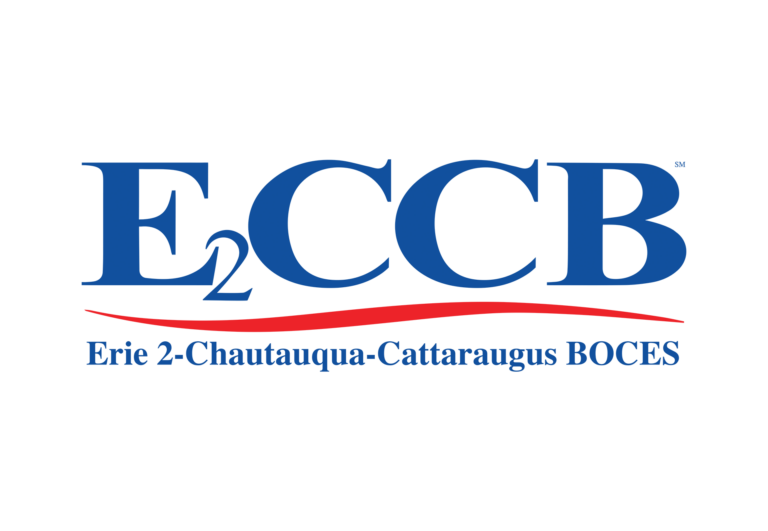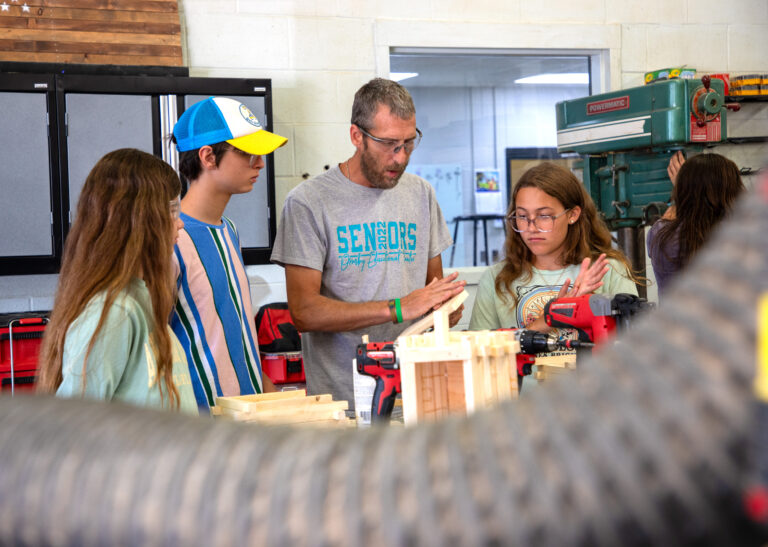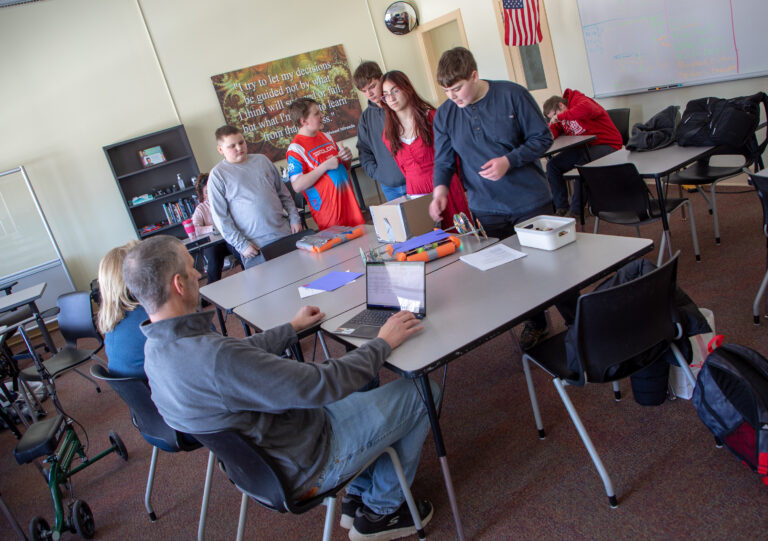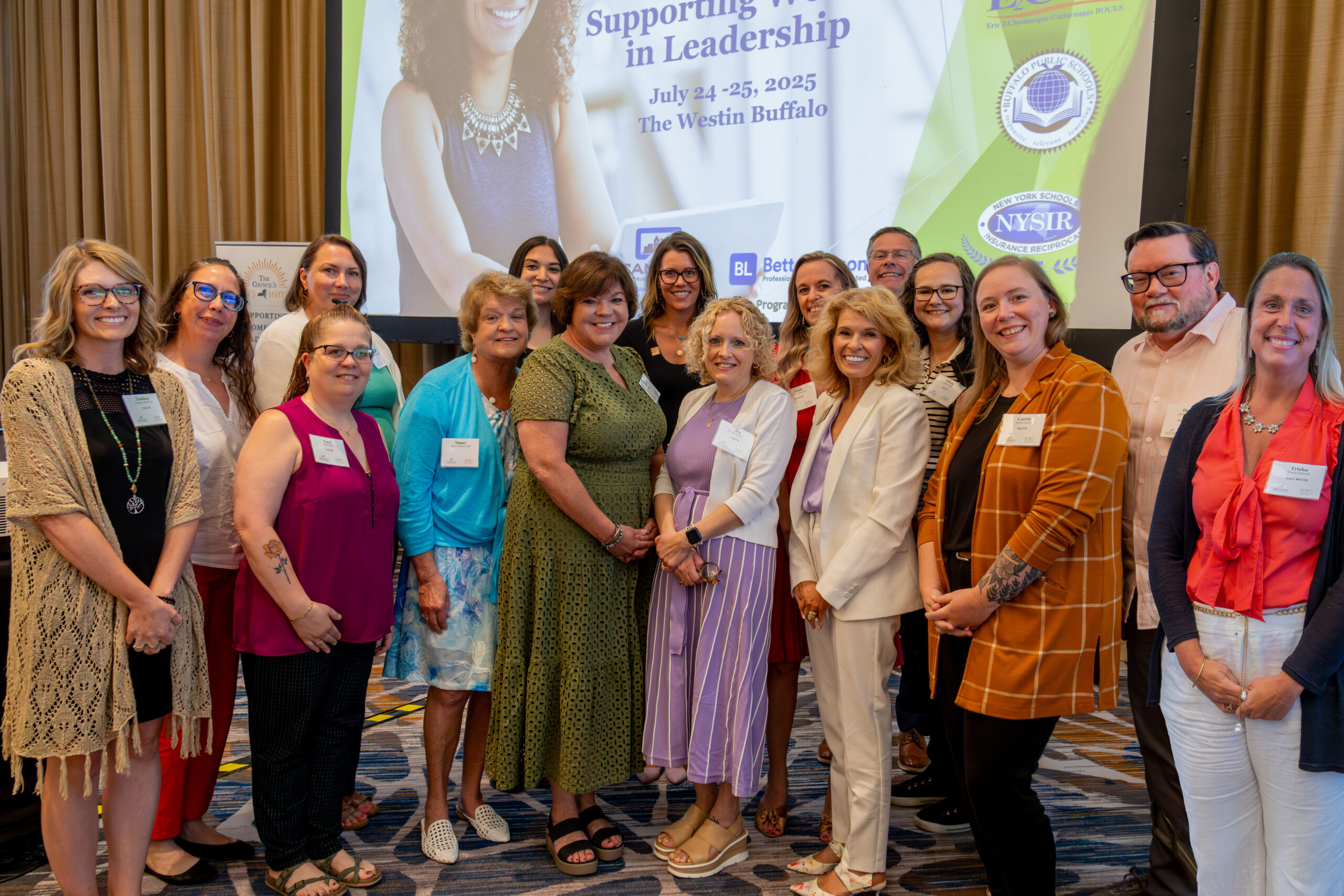
BUFFALO, N.Y. — On July 24-25, more than 100 educators from across New York state gathered in the Grand Ballroom of The Westin Buffalo for an event that went beyond professional development and networking.
The 2025 Women’s Initiative — co-hosted by Erie 2-Chautauqua-Cattaraugus BOCES (E2CCB), the New York State Council of School Superintendents (NYSCOSS), Buffalo Public Schools, and the Leadership for Educational Achievement Foundation — offered two days of immersive sessions, honest storytelling, and action-driven conversations designed to support and elevate women in leadership.
The question that echoed across both days wasn’t just “What’s next?” It was “If not you, then who?”
Leading Boldly: Story as Strategy
Day one opened with welcome remarks from Jacinda “Jazz” Conboy, General Counsel at NYSCOSS and Bryna Moritz, E2CCB Deputy Superintendent. From the outset, attendees were invited not just to listen — but to reflect, respond, and reimagine their own path to leadership.
Nadia Nashir, Superintendent of Lackawanna City School District, led the opening session, “Leading Boldly: Women in Educational Leadership.” Her message was simple but transformative: leadership isn’t found in boardrooms or textbooks — it’s forged through lived experience.
“If we don’t understand the roots of our leadership,” Nashir said, “we risk forgetting who we are in rooms that were never designed for us. And make no mistake, you were meant to be in these rooms.”
Through stories of bias, resilience, and self-advocacy, Nashir challenged women to stop waiting for permission and start building the future — especially for the students watching them lead.
Principles of Leadership: Dr. Nancy Nielsen’s Playbook for Impact
In one of the event’s most engaging sessions, Dr. Nancy Nielsen — former President of the American Medical Association — delivered “Principles of Leadership,” an insightful and often humorous keynote that wove together decades of experience in medicine, policy, education, and advocacy.
Though she joked about the challenge of following such powerful speakers, Dr. Nielsen’s candid storytelling and razor-sharp reflections quickly captivated the room.
“You all have a whole hell of a lot more fun at your meetings than doctors do,” she quipped. “But as you’ll hear, my story, although very different, the themes and the principles are very, very similar.”
Dr. Nielsen, a mother of five who began medical school in her thirties after already chairing a college biology department, credited her high school English teacher — Mrs. Porsha McDonald — for shaping her path.
“She was 4’10”, wore high heels, was the only black teacher in the whole county … and she ran everything,” Nielsen said. “When she told me to enter an extemporaneous speaking contest as a junior, I didn’t say no. I won the state finals — and if you don’t think that extemperaneous speaking is the best preparation for leadership, you haven’t thought about it much.”
Her principles of leadership? Know your values, even as they evolve. Say yes to opportunity, even when it’s unexpected. And never underestimate the power of showing up prepared.
“You don’t have to have power to have influence,” she said. “If you have power, that’s great, but you can have a big impact with influence.”
She encouraged attendees to lean into professional appearance not out of vanity, but out of readiness.
“For women in leadership, especially, (be sure to) have something ready to wear when the news crew shows up. You don’t want to be caught unprepared when it’s your moment to lead.”
Male Allyship: A Necessary Conversation
A notable addition to this year’s agenda was a candid panel on Male Allyship, featuring Jonah Schenker, Ed.D., Ulster BOCES District Superintendent, David O’Rourke, Ph.D., E2CCB District Superintendent, and John Griesmer, Ed.D., E2CCB Assistant Superintendent of Curriculum & Instruction. Their message was clear: men still hold a majority of leadership seats, and they must use that position to advocate for, sponsor, and elevate women.
“Men have more capital to burn,” said Conboy. “They can be the one who says, ‘Hey, I think you should be the next leader.’ That support matters.”
Panelists discussed how allyship isn’t performative — it’s personal, and it’s often the key to opening doors for the next generation of women leaders.
“Male allyship isn’t about the slide deck I can show you — it’s about a commitment to repair, being on that road and holding the spaces to work together,” said Schenker.
Their discussion tackled everything from systemic change to everyday action. The group acknowledged that true allyship involves more than passive agreement — it requires advocacy, sponsorship, and accountability.
“It’s not enough to say you support women leaders behind closed doors,” Griesmer said. “You need to put your name, your title, and your reputation behind them — publicly.”
Griesmer shared how his own dissertation — centered on the social capital of women superintendent candidates — radically changed how he viewed his role as a leader.
“Listening to their stories and experiences — it changed everything about how I lead,” he said.
O’Rourke reflected on allyship within his organization:
“There was a time, especially early on, where I approached administration like it was just pedal down — nonstop,” O’Rourke said. “I thought I was doing the work in a humanistic way, but I wasn’t actually thinking about the whole humanity of the people around me. Over time, I’ve learned to be more conscious of what staff may be going through — parenting, caregiving, struggling. I hope I’ve grown into a better ally by leading from a more human place.”
Day Two: Focused Conversations and Real-World Wisdom
The second day of the Women’s Initiative at The Westin Buffalo continued the momentum with a strong focus on peer connection and authentic reflection. The morning began with breakout sessions organized by leadership role, allowing attendees—whether building leaders, central office administrators, or district-level executives—to engage in targeted discussions with colleagues who share similar career paths and aspirations.
The morning culminated with a keynote presentation titled “Keeping It Real: My 30-Year Journey Through Education” delivered by South Glens Falls Superintendent Kristine Orr. This session offered an honest and insightful look into the realities of long-term leadership in education. Attendees explored themes such as professional growth through adversity, the power of community, and the importance of cultivating trusted networks—referred to by Orr as a “Square Squad.”
With a blend of practical advice and personal storytelling, the session provided a meaningful close to a two-day event centered on empowerment, visibility, and action for women in educational leadership.
For more information, visit https://www.nyscoss.org/Site/content/Events/Womens_Initiative.aspx
# # #

